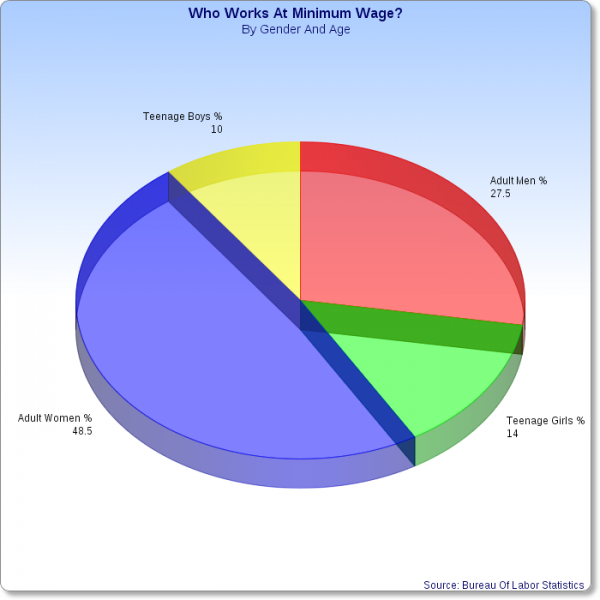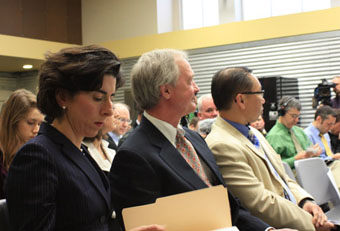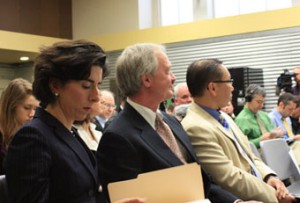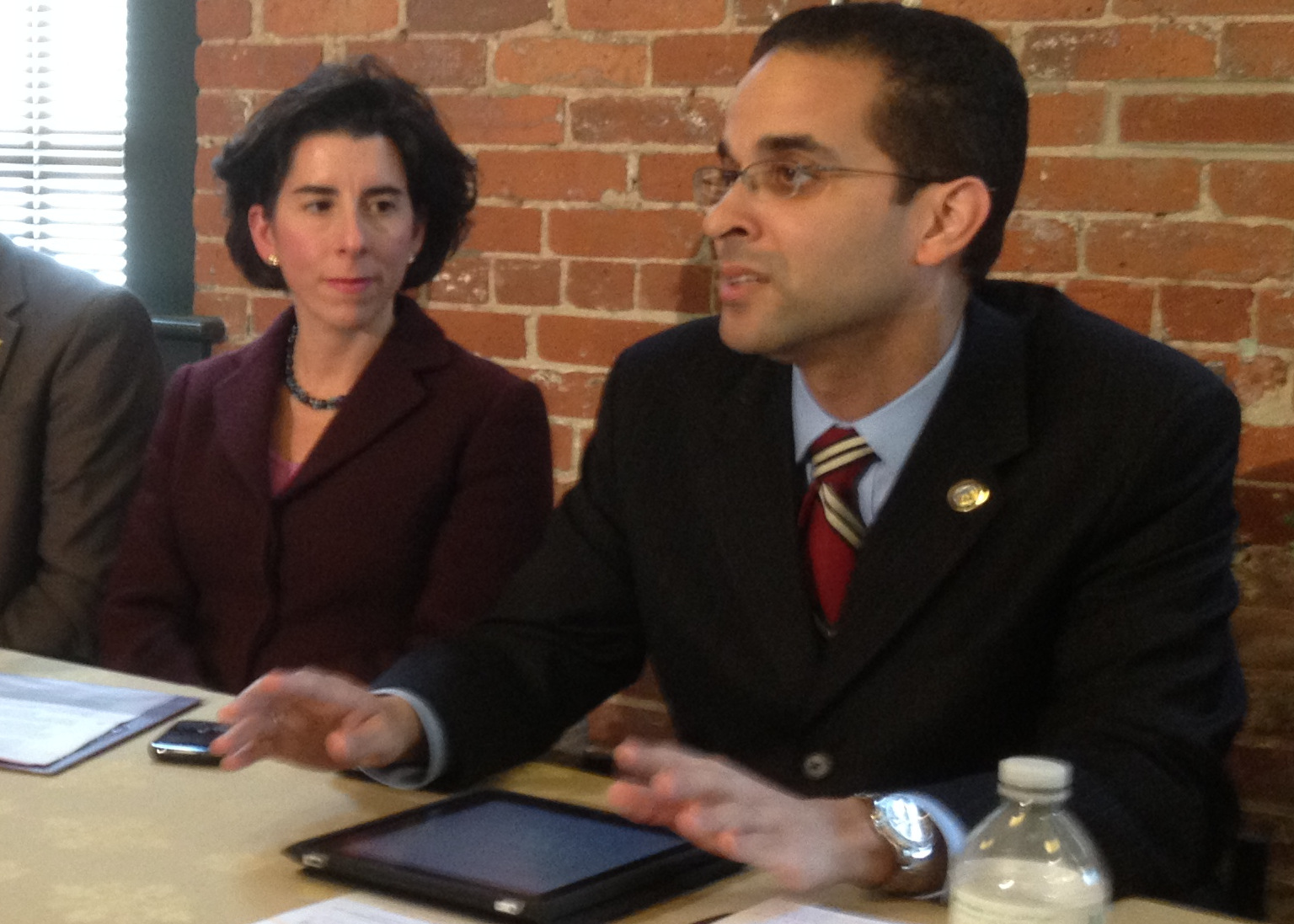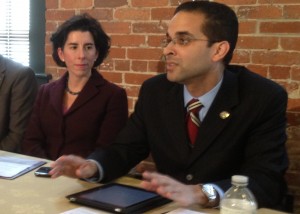Deprecated: Function get_magic_quotes_gpc() is deprecated in /hermes/bosnacweb08/bosnacweb08bf/b1577/ipg.rifuturecom/RIFutureNew/wp-includes/formatting.php on line 4387
Deprecated: Function get_magic_quotes_gpc() is deprecated in /hermes/bosnacweb08/bosnacweb08bf/b1577/ipg.rifuturecom/RIFutureNew/wp-includes/formatting.php on line 4387
Deprecated: Function get_magic_quotes_gpc() is deprecated in /hermes/bosnacweb08/bosnacweb08bf/b1577/ipg.rifuturecom/RIFutureNew/wp-includes/formatting.php on line 4387
https://www.youtube.com/watch?v=BY1OKSObkH0
Our friends at Ocean State Current-Anchor recently published a piece against the concept of a guaranteed minimum or guaranteed basic income. Justin Katz argues that a GMI would interfere with price discovery, which is an important mechanism in free markets. He is wrong.
Whoo hoo!
Okay, first, let’s celebrate. The fact that Katz is addressing this is a sign that substantial success has been made in promoting the concept of a guaranteed minimum income among liberals and conservatives. He even acknowledges that ‘[e]ven on the political right, some folks are willing to entertain the idea as a reimagining of the welfare state. . .”.
First they ignore us, then they laugh at us, then they fight us. . . We’re somewhere around step 2 1/2, because we’re not getting laughed at, but the argument being made against us is not emanating from an immediate bill to make this happen.
The Right and the Basic Income
Who does Katz mean when he says that some on the right are willing to entertain a guaranteed minimum income?
He might be referring back to a recent (fairly epic) conversation I had with Ken Block, Katz, C. Andrew Morse, and several other people about RI H7515. I won’t rehearse the ins and outs of that, but the gestalt of it was me pointing out that many land use, tax, and transportation disincentives to business are more significant than the labor movement in chasing away small business in Rhode Island.
C. Andrew Morse, though in concert with the others (and against me) on just about everything else, did say that he thought it was plausible to imagine a future where benefits like SNAP or Section 8 could be swapped out for a general income to all people in the country.
On a grander level, though, the right has always been the biggest proponent of a guaranteed minimum income (with substantial left support). The kingpin of economic conservatism, Milton Friedman, was a huge supporter:
Don’t worry. Though Friedman is not usually the sort of person many of us would claim common ground with, guaranteed minimum income programs are an important part of most social democracies, and even (in a weaker form) exists in the U.S. through the Earned Income Tax Credit (EITC). In fact, the GMI is arguably more important than the minimum wage in creating lowered inequality in a market economy, because in places like Denmark it allows what’s called “labor flexibility” while also providing an effective bargaining shove in the favor of working class organizing.
Building from Lincoln Logs
The argument that Katz is making about price discovery is not false. Katz says:
What ought to happen [in economic hardship] is that prices adjust to reflect the new economic reality. If your entire industry is displaced, many people won’t be able to afford the latest gadgets, so the industry that makes those gadgets will have to find a way to lower their prices. Every industry will have to lower its prices to reflect the reduction in demand at current prices. That sounds terrifying, but remember that the premise is that technology is displacing people and making everything less expensive to produce.
This is true.
To take an example: in the housing crisis, it was bad for a person who owned a house for their housing price to dip, and a lot of effort has been made to re-inflate the housing bubble so that prices would return to an upward trend. But obviously having housing prices dip would be good for someone who might want to buy a house but previously couldn’t. It’s more complex than that, of course, but mainly that’s because we have a string of regulatory and tax externalities that get in the way of very poor people taking advantage of that price change. For instance, we zone away affordable housing types, we make it illegal for certain people or certain numbers of people to share housing, we have a tax system that rewards interest payments that primarily are accessed through loans by wealthy people, and so on. But the point, overall, is still true. If you live in Providence as a poor person you are much more likely to be able to find affordable housing than if you live in a housing market like San Francisco where the prices have gone sky-high.
Where Katz goes wrong is in building an economy out of Lincoln Logs. He imagines a very small scale village, perhaps, where giving the village’s poor is a huge input into the economy, and has an outsized effect on prices. It’s true that poor people getting a basic income will have a slight stabilizing effect on prices, but the effect on the poor people’s poverty is going to be a lot bigger to them than to the community. It’s like rolling a bowling ball down a ramp and having it bounce off a super-ball. The laws of physics say that each is affected equally in opposite directions, but the mass and elasticity of the super-ball mean that it is the actor that is affected most dramatically.
The problem here is that Katz ignores orders of magnitude. We have a huge economy, and currently in that economy the top 0.1% of the U.S. owns more than the bottom 150 million people the bottom 90% (287 million= 318.9 million x 0.9, see reference from Politifact). Making sure that an even smaller slice of that 150 million 287 million has a basic amount of money to not go homeless or hungry is insignificant compared to the size of the economy.
Other Flaws– Forgetting Costs
This’ll be a basic rehearsal for many people on the left, but the right should remember that just removing one cost does not always mean solving a problem. In fact, this shouldn’t be a controversial thing to impress upon a conservative who is thoughtful, because conservatives are the group that most seeks the concept of a business-like “cost-benefit analysis”. A liberal might be inclined to say that certain things just are good no matter what, but conservatives are supposed to be the people who say, “Wait, what are the other factors?”
Here are some other factors I can think of:
 Violence: When people are in absolute desperation, they are more likely to turn to violence. We can assume that we’re going to take a tough stance on these folks, but that means building prisons and paying for more police. Since we already have the largest prison population in the world– bigger than China’s, both per capita, and absolutely– we’re not really in a place to dillydally on this issue. Welfare reform sucked for lots of reasons, but the oddest one of all was perhaps that it ultimately has cost us more money than welfare did to get rid of welfare and put people in prisons.
Violence: When people are in absolute desperation, they are more likely to turn to violence. We can assume that we’re going to take a tough stance on these folks, but that means building prisons and paying for more police. Since we already have the largest prison population in the world– bigger than China’s, both per capita, and absolutely– we’re not really in a place to dillydally on this issue. Welfare reform sucked for lots of reasons, but the oddest one of all was perhaps that it ultimately has cost us more money than welfare did to get rid of welfare and put people in prisons.
Educational gaps: In the long-run, the market corrects many things, but as Keynes said, “In the long run we’re all dead.” If a child has a short-term shortage of nutrition, even if a very effective private charity eventually fixes that problem, the gap in the meantime is likely to cause longterm harm to their educational achievement.
Health: Whether we have a fully private health system, or a fully public one, or a weird mishmash of public and private like what we have here in the U.S., the costs to mental and physical health are great when people are in tough times.
Bureaucracy: As Friedman points out, we’re not starting from scratch. We have numerous bureaucracies that handle many overlapping and competing forms of aid. Martin Luther King made a similar point, if from a very different perspective, during his Poor People’s Economic Human Rights Campaign. The biggest single advantage of the guaranteed minimum income over other programs is that it deals with aid more efficiently. Conservatives should stop acting as though some magical world without aid of any kind is going to come about, and instead start thinking of how existing aid programs can be made to benefit the most people for the least amount of money.
Markets are Good, Extremes are Bad
The Schumpeterian “creative destruction” of the market which is part of the very laissez faire Austrian school of economics says that bad things happening in an economy can produce great progress in the long run. While we’re not terribly open to this idea on the left, we should be. For one, it’s merely a reflection of the Marxist belief in the same thing, and was in fact developed in response to the idea of Marxism.
More to the point, creative destruction is all around us. When a business fails, someone is able to buy up the resources from that business at pennies on the dollar and repurpose them. It’s like the succession of a forest: a fire happens, thousands of trees are lost, but the conditions that allow small plants to grow up and mature are created, and soon a new forest is born. But this metaphor fails when it’s taken to the micro-level. We don’t think of people as like trees. We think of people as people. We value them (because, after all, we’re biased) as individuals. In the long run, the creative destruction happens. The welfare system exists to make sure the change happens without harming individual people.
A guaranteed minimum income is a good way to balance the forces of creative destruction without sacrificing what’s most important to us: people. Conservatives should adjust to that.
~~~~
Update: Justin Katz wrote a response to mine this morning, drawing heavily on the physics metaphor. I think he still misses the point, and in some ways he digs himself into a less reasonable position than he initially took.
Elasticity
Much of his post really draws on the elasticity aspect of the physics metaphor. Quoting from the most recent piece:
First, though, I’ll point out a technicality. My post was explicitly not about using a UBI as a welfare mechanism for a small population of very poor people, but rather about using it as a way to reconfigure our economy when technology makes large numbers of human jobs superfluous. In that case, Kennedy’s argument about size and elasticity does not apply.
Well, yes, Katz’s article was about how the GMI could be used to protect the Big Other of the tech industry, but that is exactly the reason the elasticity argument does apply. Let’s review what Katz said in his first piece:
As David Rotman writes in the MIT Technology Review, some folks are seeing a UBI as a way to address the social change when technology ensures that fewer and fewer people actually have to do anything resembling work:
[Quote block within Katz’s piece] “… among many tech elites and their boosters, the idea of a basic income seems to have morphed from an antipoverty strategy into a radical new way of seeing work and leisure. In this view, the economy is becoming increasingly dominated by machines and software. That leaves many without jobs and, notably, society with no need for their labor. So why not simply pay these people for sitting around? Somehow, in the thinking of many in Silicon Valley, this has become a good thing.”
It’s not surprising that tech oligarchs and other comfortable groups of people would favor the idea, because the healthier, more-natural economic path forward would put some risk on them, rather than just on the poor folks losing their jobs. If you’re out of work and the government gives you money (from somewhere), then you can go on buying devices and software, keeping Silicon Valley humming. (My emphasis)
Whatever Rothman or Katz might say, my point is the GMI has never been offered as a way to prop up specific industries. Its biggest advantage is the fact that it gives tremendous choice to individuals who use it, not that it acts as some kind of constraint on choice through corporate welfare or state-owned-industries. The disappearance of particular jobs due to industrial change may in fact be the reason a given population has no work, or has lousy work, at any given time, but the mechanism of addressing that problem– giving them money– does not in any way protect an industry. Recipients can “go on buying devices” but they can also buy other things if they wish. There’s no implicit guarantee for the industries.
So Katz says elasticity is good.
But Katz moves the goal posts from the beginning of his rebuttal to the end, because he states that:
Right now, we’ve got a pretty stiff approach to welfare, delivered mainly in specific products and services, and it’s processed through a slow bureaucracy. In addition to the simple wastefulness of doing anything through government, this creates complications and has an effect on the economy (decreasing the incentive to work, for example), but we have to consider pluses and minuses in our specific context. Cash, on the other hand, is a very elastic medium, and using it for welfare would rocket the economic and individual problems much higher.
Money is fungible, of course, so if we all pay for somebody’s food, that person can spend his or her other money on things of which we do not approve, but at least he or she gets the food. If we simply hand out cash, then the person can skip the food and go right to paying for… say… hard drugs. Being compassionate, what does our society do then? Finally cut the people off, and declare their destitution beyond our responsibility? (My emphasis)
So Katz says elasticity is bad.
Today, Katz’s blog trumpets a vote to make using SNAP benefits for drugs or gambling illegal. So while Katz’s reply to me does acknowledge an outside chance of fraudulent SNAP use (“Of course, giving people things they don’t want above other things, but that have value, we probably increase the tendency toward fraud (to convert the food into cash”), he argues that the benefit of the SNAP program is that it mostly guards against that result (“If we fund just food, the person still has to come up with money for things he or she wants. That could mean incentive to work.”). Yet if SNAP’s advantage is that it prevents the elastic use of its benefits for things like drugs, why does Katz’s blog highlight an effort to make that use illegal at the state level? It is already illegal to use SNAP for this purpose at the federal level. The answer is that the 66-1 vote to make welfare fraud doubly illegal is more about casting doubt on the morality of poor people than about addressing a real problem.
So Katz may be a hobgoblin, but consistency is not part of his mind.
Nonetheless, drug abuse is a real thing, and it is not at all hard to imagine that some people do manage to use their food stamps for purposes other than food. Milton Friedman had answers to the idea of drug use directly. He felt that government did its best work in providing basic and mostly undifferentiated services to the general public, while very complex social issues were best handled at the ground level by private individuals. I think this is a solution that is commensurate with social democratic thought, but at its very roots it is a conservative idea. So in Friedman’s world, all people would have some basic money to do with what they might, and private charities could educate them to the risks of drug use, provide needle exchanges to prevent disease amongst those who still choose drug use, and provide varied approaches to treatment for those getting out of drug abuse. The housing needs of individuals suffering from this problem would be privately met– untrammeled by exclusionary zoning. This is a vision where the vast majority of the complex work of fixing a complex issue is done by the private sector. This is the vision offered by the left. The right, on the other hand, has worked to make basic benefits hard to get, but has also tied the hands of private individuals who might want to help with drug abuse. Needle-exchanges, drug decriminalization, and other programs that might let the private sector shine have generally been anathema to the right (I couldn’t find anything immediately demonstrable of this on Katz’s blog, and it’s not fair to paint all conservative thought with one brush, but to illustrate my point, here’s an example from Kentucky. Some Republicans in New Hampshire had a better approach this year, though their party was split).
Mass

Katz does not address relative masses, but I think mass is actually the more important factor. And, in fact, I actually think my first metaphor was too modest. The difference between an individual getting modest help and the size of the economy is less like a basketball-to-golf-ball comparison than it is to an Earth-to-basketball comparison. The economy of the country is huge, and the amount of help needed to provide sustenance is tiny. It’s impacts are felt heavily on the individual and weakly on the economy not just because the individual is more elastic (can make more individuated choices) but also because the mass difference is so great.
Think about it: you move the Earth. Everyday. When you jump off the ground, you push on the Earth and the Earth pushes back. Equally. It’s an astounding thought when you first think of it, but it’s a law of physics (Newton’s Second). But though the law states as an ironclad rule that the effects are equal in terms of their physical force, the three feet you may be able to jump are much greater than the tiny, many-zeroed, decimals-of-a-micrometer that your motion affects the trajectory of the Earth– though it technically does affect its trajectory.
Astounding. The world around us is amazing. Let’s make sure everyone can enjoy that wonder.
~~~~
If you like what you see, you can donate to my PayPal at james.p.kennedy@gmail.com.


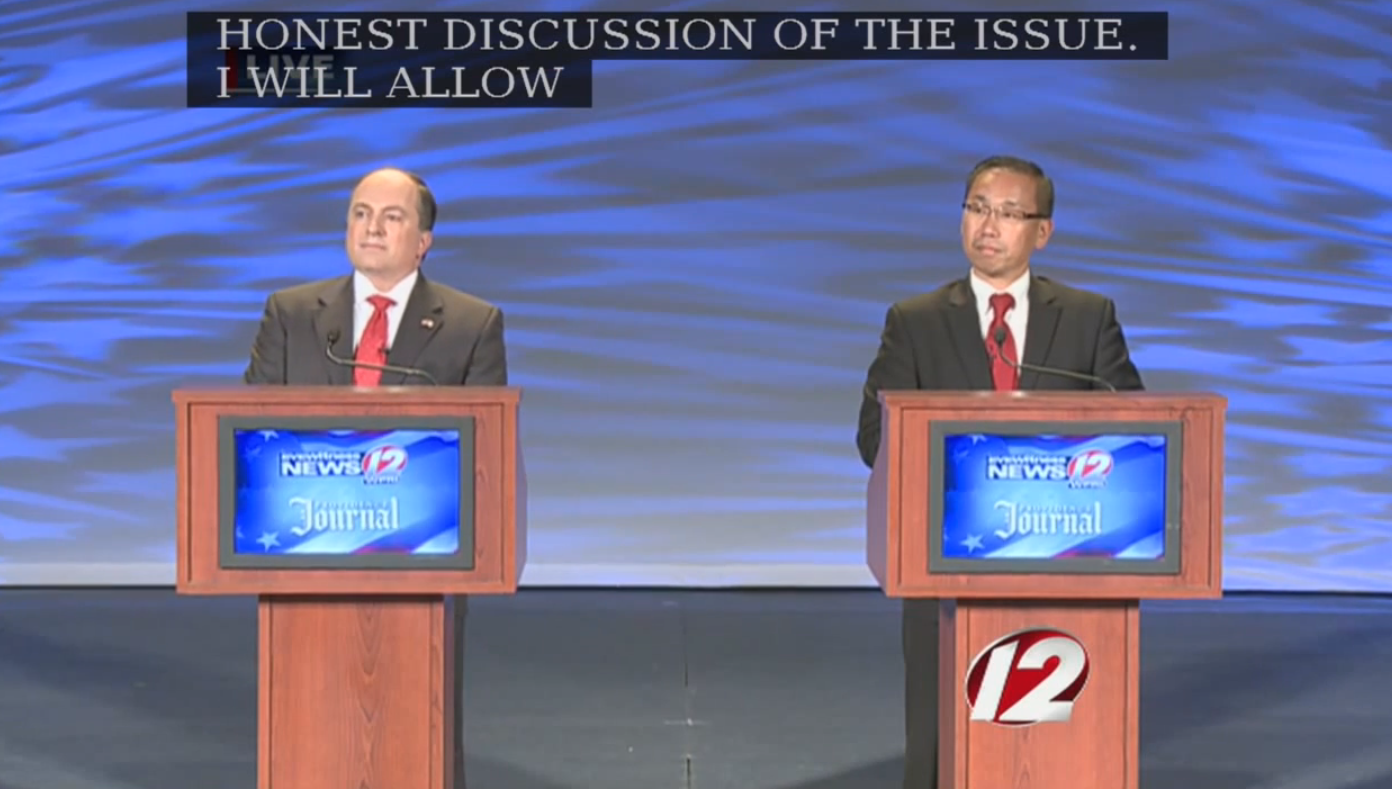
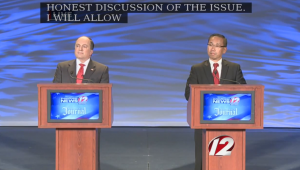
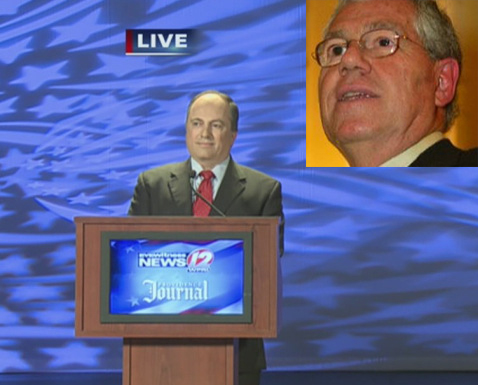
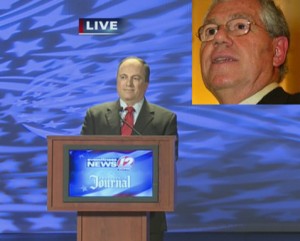
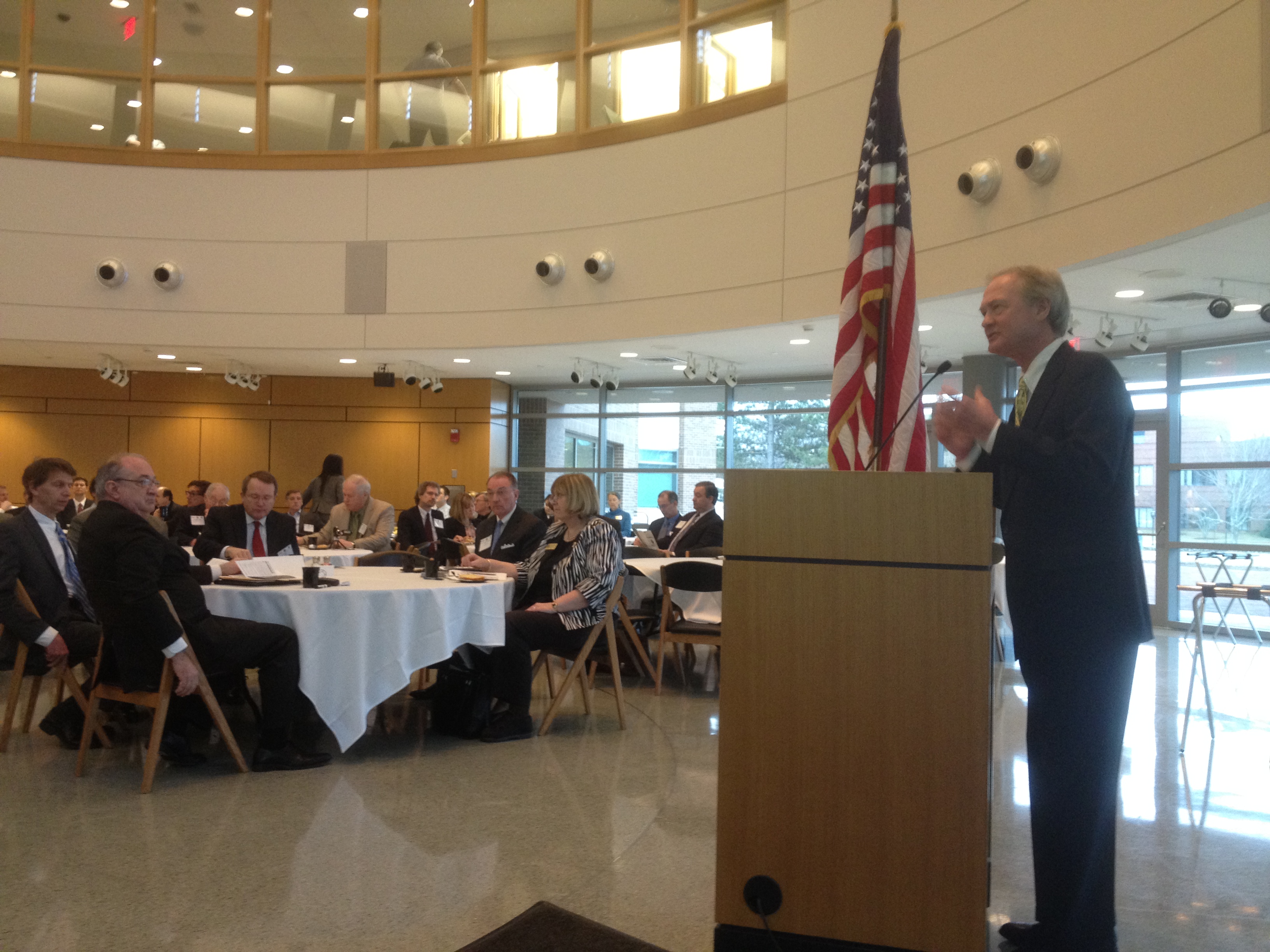
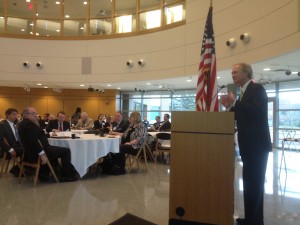

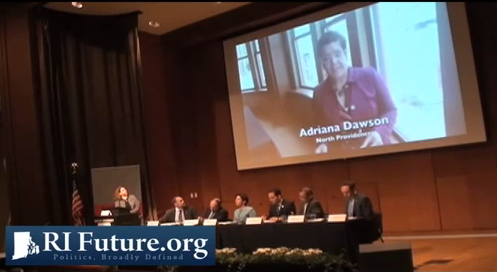
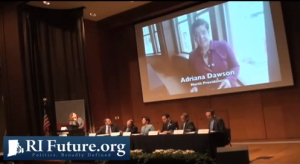
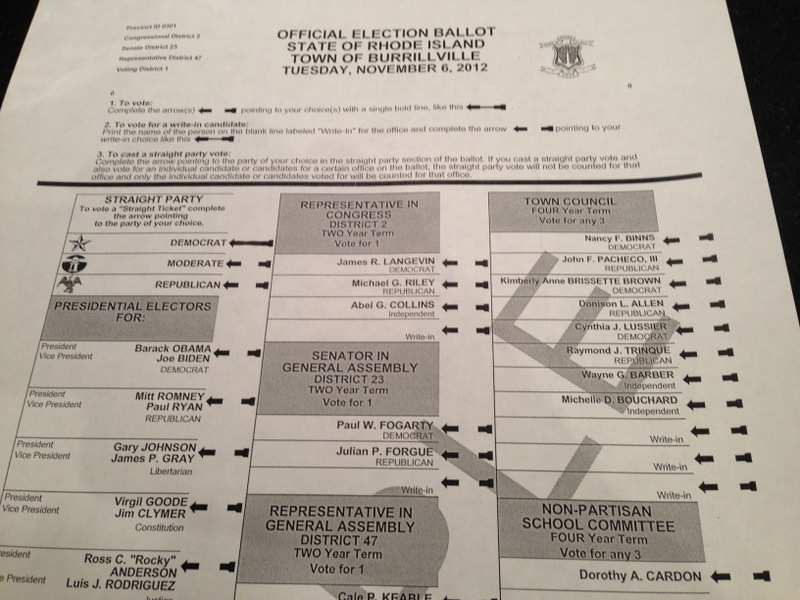
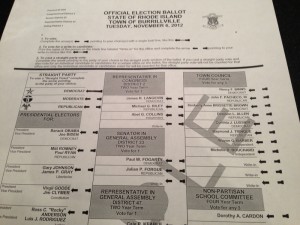


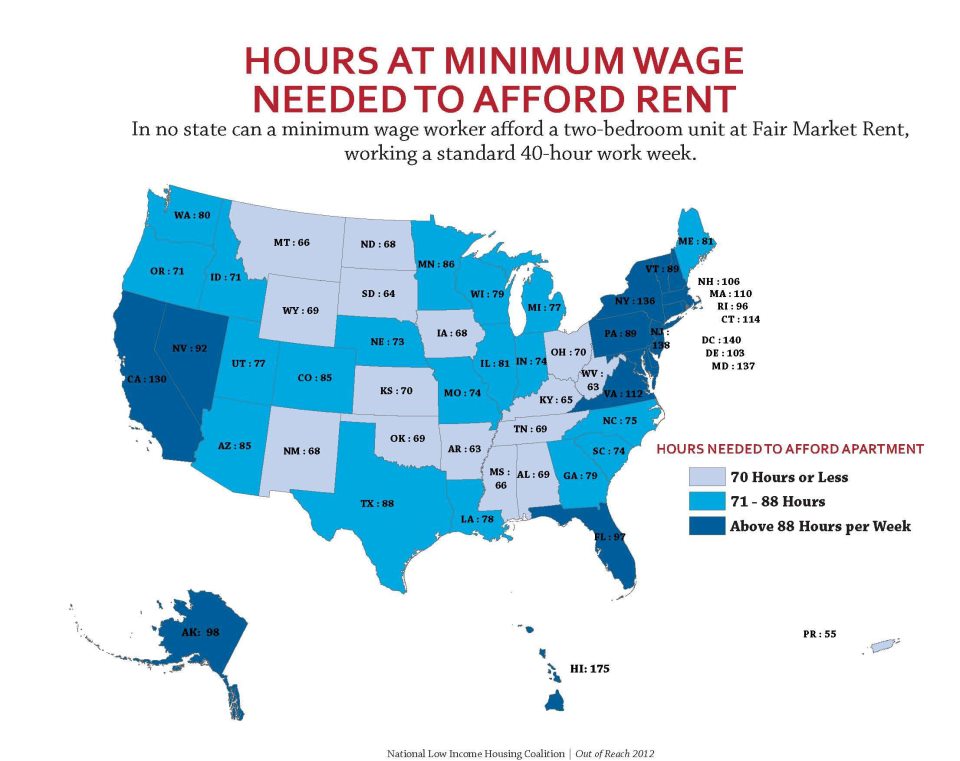
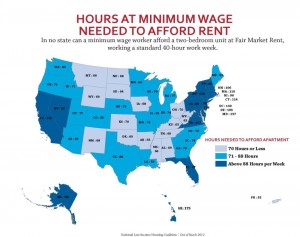
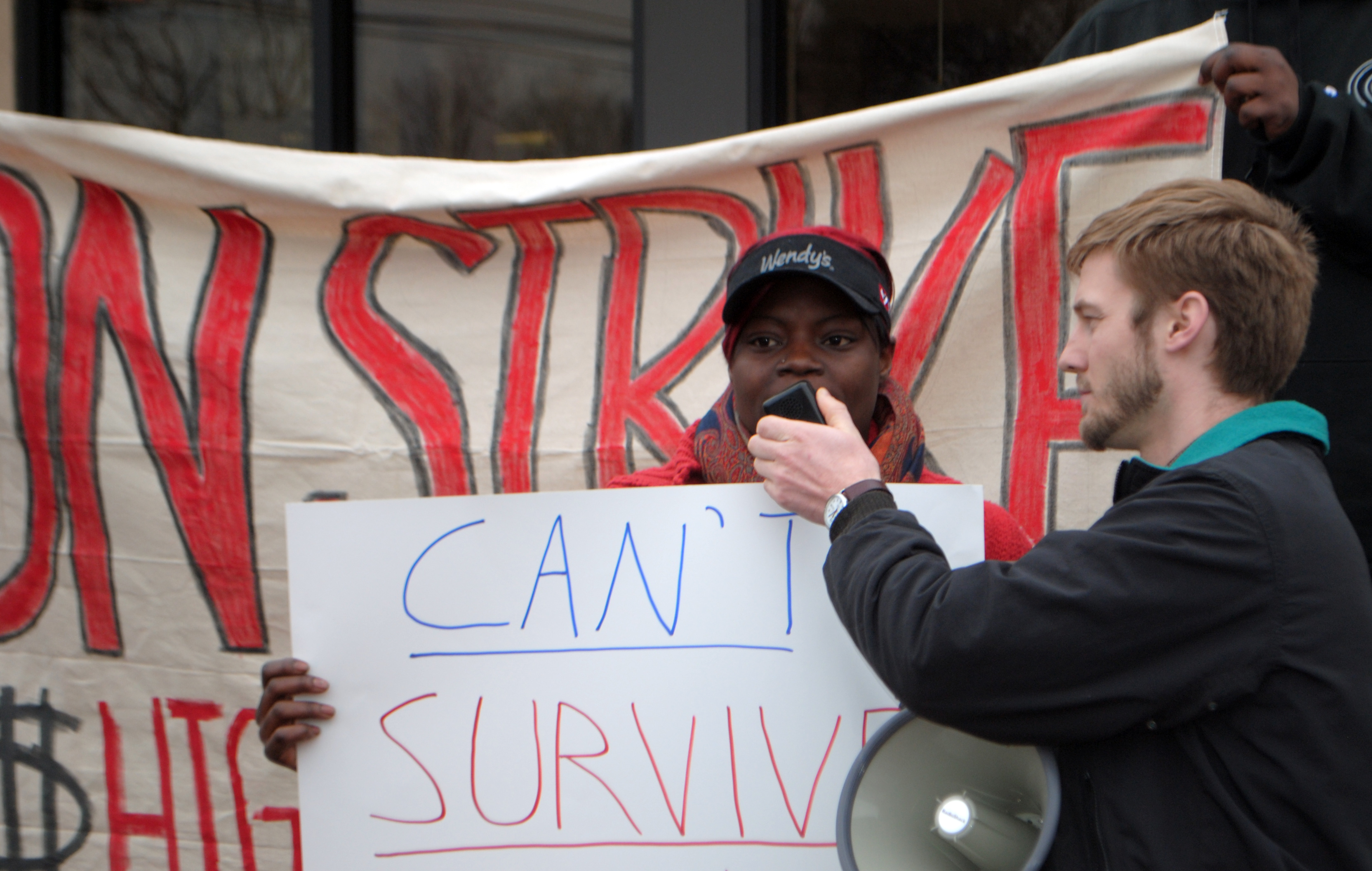
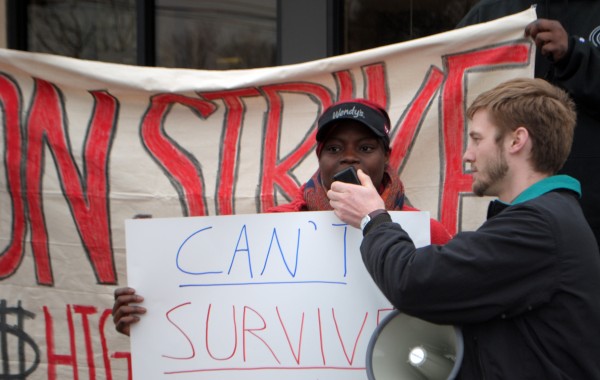 Arguments against raising the minimum wage are tedious, immoral and wrong.
Arguments against raising the minimum wage are tedious, immoral and wrong.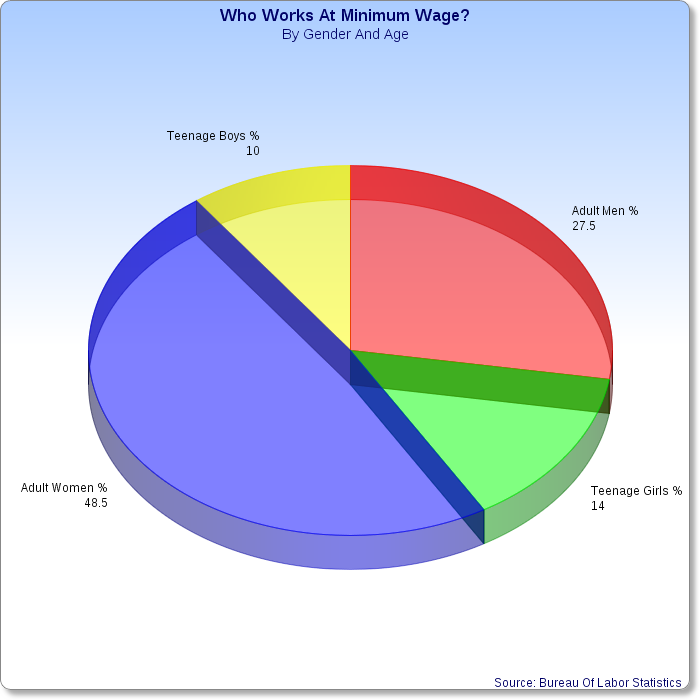
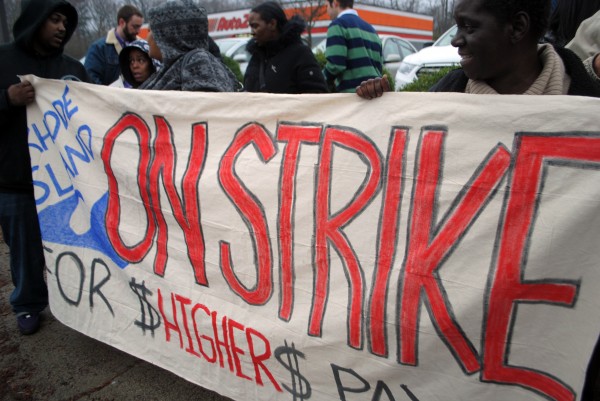 In response to Democratic gubernatorial candidate Angel Taveras supporting a minimum wage increase in Rhode Island from its current $8 to a kingly $10.10, both Republican candidates,
In response to Democratic gubernatorial candidate Angel Taveras supporting a minimum wage increase in Rhode Island from its current $8 to a kingly $10.10, both Republican candidates, 